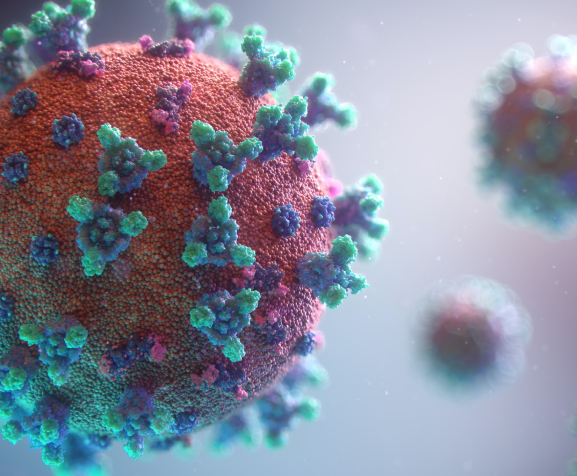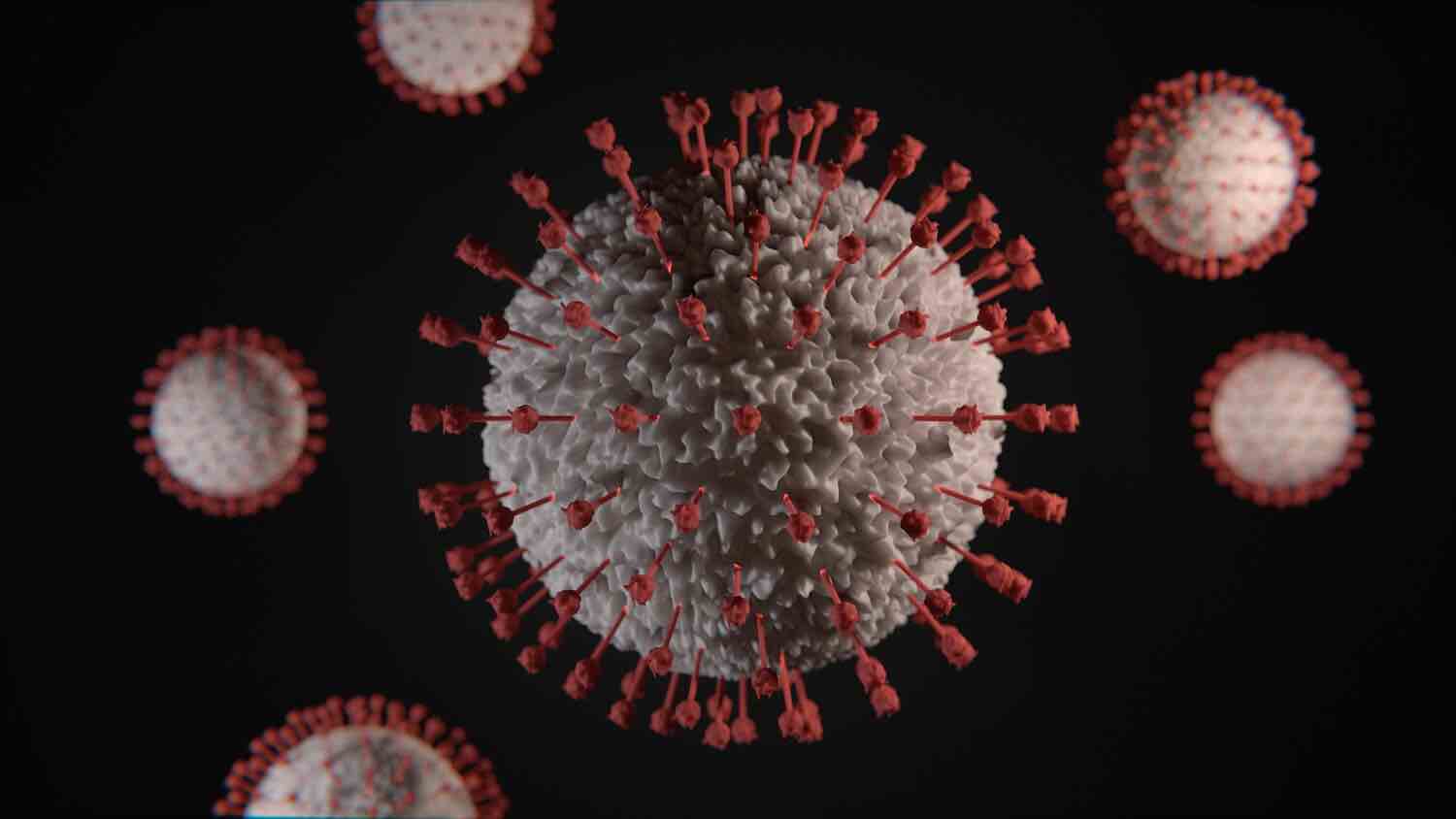
The World Health Organization officially declared the COVID-19 outbreak a pandemic on March 11, 2020. The first case of COVID-19 was reported in December 2019 in Wuhan, China. COVID-19, a new kind of coronavirus can cause a respiratory disease in diverse degrees. The mild appearance of the disease includes a fever, dry cough and tiredness. In severe cases, people with the virus can develop difficulty of breathing, pneumonia and may ultimately experience organ failure that can lead to death. The virus has spread rapidly outside of China and today there are more than 1,800,000 cases reported around the world. The countries with the highest number of cases are US in the lead, and then Spain, Italy, France, Germany, UK and China in 7th place.
People who are over the age of 60 are at a higher risk of developing a severe case of COVID-19, according to data collected by the WHO. The highest death rate was reported in people that are above the age of 80. The elderly is not the only group at high risk. People with chronic conditions such a diabetes, high blood pressure, heart and kidney diseases are also more likely to contract the virus and get sick with severe symptoms.
Impact of COVID-19 pandemic on lung cancer patients
People with cancer and specifically with lung cancer are also at an increased risk of COVID-19. The clinical procedures performed for diagnosis of lung cancer and the treatment given to patients identified with lung cancer have both been disturbed due to this outbreak. Elective procedures and surgeries for the diagnosis of lung cancer are being postponed in order to minimize risk of infection. Anti-cancer treatments, including chemotherapy or immunotherapy, that weaken the immune system are turning the patients to be more susceptible to infection than healthy individuals.
The first clinical data on the effect of COVID-19 on patients with cancer came from China and was published recently at The Lancet1. In this study, the investigators analyzed data from 2,007 cases of hospitalized COVID-19 patients from 575 hospitals in China. Although only a small sub-group of patients, 18 of them, had a history of cancer, initial conclusions have been reported. Lung cancer was the most frequent type of cancers that was observed. Patients with cancer had a higher risk of having severe symptoms from COVID-19 compared to patients without cancer. The same trend was shown for patients that underwent chemotherapy or surgical procedures in the past month compared to patients that did not receive such treatment. In addition, the investigators showed that patients with cancer had poorer outcomes from COVID-19. Thus, it is very important to carry out meticulous and individualized clinical management for cancer patients in general and lung cancer patients in particular. Patients with cancer should be effectively protected from COVID-19 while not impairing the treatment that they should get for the diagnosis and treatment of their cancer.
Potential treatments for COVID-19
Up to date, there are no effective vaccines nor anti-viral therapeutic agents that have been approved to treat COVID-19. The current approach to coronavirus disease management focuses on supportive care. Scientists around the world are investigating different approaches to fight the virus infection. These include antibody therapy and anti-viral drugs as potential treatment for COVID-19. Research is done in-vitro in a lab setting and then in clinical trials because it is important that in-vitro activity of potential drugs will not be interpreted as proof of clinical efficacy against COVID-19.
Some of the anti-viral compounds that were evaluated as candidates against COVID-19 include Remdesivir, lopinavir, emetine, and homoharringtonine. These compounds have shown different levels of inhibition of viral replication in vitro, but the results in clinical trials were less effective. (2)
Promising results were shown by the anti-malaria drugs, chloroquine phosphate and hydrozychloroquine. Both compounds blocked COVID-19 infection in-vitro and are now being studied in clinical trials. Initial results from 100 COVID-19 patients in China treated with chloroquine phosphate have demonstrated the compound’s ability to inhibit the exacerbation of pneumonia, improved lung imaging findings and shortened the disease course3. A smaller study performed in France tested the effect of hydrochloroquine in 20 COVID-19 patients. The results have shown a reduction in viral load in patients that were treated with hydrochloroquine after 6 days of treatment. Addition of azithromycin to hydrochloroquine was shown to be significantly more efficient for virus elimination4.
Another potential approach for COVID-19 treatment is the use of monoclonal antibody therapy. Passive immunization of antibody that can recognize specific regions of the foreign virus proteins can reduce the virus replication and disease severity. Antibodies for passive immunotherapy can be isolated from the blood of the infected patients or it can be manufactured in the laboratory5. This approach was shown to be effective for other viruses such as Influenza A or HIV. Immunotherapy with immune IgG antibodies combined with antiviral drugs may be an alternative treatment against COVID-19 until preventative options such as vaccines are available.
Within the four months since the discovery of the first case of COVID-19, the virus has spread rapidly throughout the world and led to a large number of confirmed cases and deaths. This pandemic has changed our life in every aspect. On the other hand, modern medical knowledge and technology enabled us to promptly learn the transmission of the virus as well as its clinical features; it enabled us to detect the disease, prevent infection, develop diagnostic tools, provide appropriate medical care and now develop potential treatments. There is still a lot to learn, and we learn as we go, but together we can win this war and bring health back to the world.
References
1 Wenhua Liang et al; Cancer patients in SARS-CoV-2 infection: a nationwide analysis in China. The Lancet. Vol 21, March 2020
2 Choy KT et al; Remdesivir, lopinavir, emetine, and homoharringtonine inhibit SARS-CoV-2 replication in vitro. Antiviral Res. 2020 Apr 3
3 Gao J et al; Breakthrough: Chloroquine phosphate has shown apparent efficacy in treatment of COVID-19 associated pneumonia in clinical studies. Biosci Trends. (2020)
4 Gautret et al; Hydroxychloroquine and azithromycin as a treatment of COVID-19: results of an openlabel non-randomized clinical trial. International Journal of Antimicrobial Agents – In Press 17 March 2020
5 Shanmugaraj B et al; Perspectives on monoclonal antibody therapy as potential therapeutic intervention for Coronavirus disease-19 (COVID-19). Asian Pac J Allergy Immunol. 2020 Mar;38(1):10-18.
